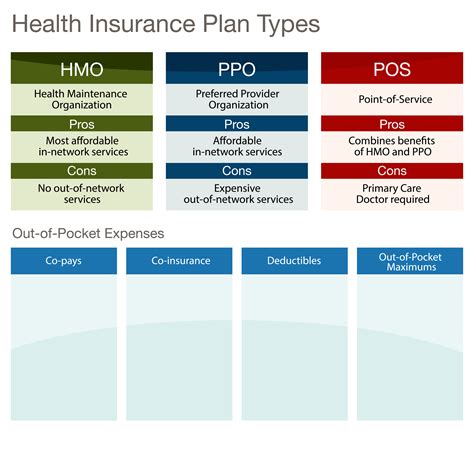12+ Ways To Maintain Ideal Blood Sugar

Blood sugar maintenance is a delicate balance that, when achieved, can significantly improve overall health and quality of life. Managing blood sugar levels effectively is crucial for preventing complications associated with diabetes and prediabetes, such as cardiovascular disease, kidney damage, and nerve damage. The goal of maintaining ideal blood sugar levels involves a combination of lifestyle modifications and, in some cases, medical interventions. Here are 12+ ways to help maintain ideal blood sugar levels, ensuring a healthier and more balanced life.
1. Dietary Adjustments
- Carbohydrate Management: Focus on whole, unprocessed foods like vegetables, whole grains, lean proteins, and healthy fats. These foods are not only rich in nutrients but also tend to have a lower glycemic index, meaning they cause a slower and more gradual increase in blood sugar levels.
- Glycemic Index Awareness: Understanding the glycemic index (GI) of foods can help in making informed choices. Foods with a low GI (e.g., broccoli, spinach) cause less of a spike in blood sugar than high GI foods (e.g., white bread, sugary snacks).
- Hydration: Drinking enough water is essential for overall health and can help keep blood sugar levels within a safe range by improving insulin sensitivity.
2. Regular Physical Activity
Engaging in regular physical activity is a cornerstone of blood sugar management. Exercise helps increase insulin sensitivity, meaning the body can more effectively use insulin to manage blood sugar levels. Activities such as walking, cycling, and swimming are beneficial, and incorporating strength training can further improve insulin sensitivity and overall metabolic health.
3. Stress Management
Chronic stress can elevate blood sugar levels by triggering the release of stress hormones like cortisol, which can cause the liver to release stored glucose (glycogen) into the bloodstream. Engaging in stress-reducing activities such as meditation, yoga, or deep breathing exercises can help mitigate this effect and support blood sugar control.
4. Quality Sleep
Getting adequate, quality sleep is crucial for maintaining healthy blood sugar levels. Poor sleep can lead to increased levels of cortisol (a stress hormone that can raise blood sugar) and decreased insulin sensitivity. Aim for 7-8 hours of sleep per night to help regulate blood sugar levels.
5. Monitoring and Recording
Regularly monitoring and recording blood sugar levels can provide valuable insights into how different factors (such as food, exercise, and stress) affect blood sugar. This information can be used to make informed decisions and adjustments to maintain ideal blood sugar levels.
6. Supplements and Vitamins
Certain supplements, such as chromium, magnesium, and vitamin D, may help improve insulin sensitivity or have a direct effect on blood sugar levels. However, it’s essential to consult with a healthcare provider before adding any supplements to ensure they won’t interact with medications or have adverse effects.
7. Limiting Alcohol and Tobacco
Both alcohol and tobacco can have detrimental effects on blood sugar control and overall health. Alcohol can interfere with blood sugar control and cause hypoglycemia (low blood sugar), while smoking exacerbates insulin resistance and increases the risk of developing type 2 diabetes.
8. Mindful Eating
Practicing mindful eating can help in making better food choices and paying attention to hunger and fullness cues, which can aid in managing portion sizes and reducing overeating.
9. Regular Health Check-Ups
Regular visits to a healthcare provider are essential for monitoring blood sugar levels, getting necessary screenings, and adjusting treatment plans as needed. Early detection and management of blood sugar issues can prevent long-term complications.
10. Education and Support
Educating oneself about diabetes and blood sugar management, along with seeking support from healthcare professionals, family, and friends, can significantly impact the ability to maintain ideal blood sugar levels. Support groups, either online or in-person, can provide a sense of community and valuable resources.
11. Holistic Approaches
Incorporating holistic approaches such as acupuncture, which may help improve insulin sensitivity, and herbal remedies like berberine, which has been shown to have a positive effect on blood sugar control, can offer additional strategies for maintaining ideal blood sugar levels. However, these should be used under the guidance of a healthcare provider.
12. Technology and Apps
Utilizing technology, such as blood glucose monitoring devices and mobile apps that track diet, exercise, and blood sugar levels, can provide real-time data and insights that can be used to make informed decisions about blood sugar management.
Additional Strategies
- Intermittent Fasting: Some research suggests that intermittent fasting can help improve insulin sensitivity and reduce blood sugar levels. However, this should be approached with caution, especially for those with a history of eating disorders or certain medical conditions.
- Probiotics: Beneficial bacteria in the gut can influence glucose metabolism and improve insulin sensitivity. Consuming probiotic-rich foods or supplements may support blood sugar management.
- Omega-3 Fatty Acids: Found in foods like fish, flaxseeds, and walnuts, omega-3 fatty acids have been linked to improved insulin sensitivity and may play a role in blood sugar control.
What are the ideal blood sugar levels for someone without diabetes?
+For someone without diabetes, normal blood sugar levels are typically between 70 to 99 mg/dL when fasting and less than 140 mg/dL two hours after meals. However, these targets may vary slightly depending on the individual and specific health conditions.
Can diet alone reverse prediabetes or type 2 diabetes?
+Yes, in many cases, diet and lifestyle changes can reverse prediabetes and even type 2 diabetes, especially if caught early. A diet focused on whole, nutrient-dense foods combined with regular physical activity and weight loss (if needed) can significantly improve insulin sensitivity and blood sugar control.
How often should I check my blood sugar levels if I have diabetes?
+The frequency of checking blood sugar levels can vary depending on the type of diabetes, the presence of other health conditions, and theindividual's treatment plan. Generally, people with type 1 diabetes and some with type 2 diabetes may need to check their blood sugar levels several times a day to ensure levels remain within a target range.
Are there any specific foods that can help lower blood sugar levels?
+Yes, certain foods have been shown to help lower blood sugar levels or improve insulin sensitivity. These include foods rich in fiber (like beans, legumes, and whole grains), healthy fats (found in avocados, nuts, and olive oil), and protein (from lean meats, fish, and plant-based sources), as well as specific vegetables and spices like broccoli, spinach, and turmeric.
Can stress really affect my blood sugar levels?
+Yes, stress can significantly affect blood sugar levels. When you're under stress, your body releases stress hormones like cortisol and adrenaline, which can cause your blood sugar levels to rise. Stress can also lead to unhealthy coping behaviors like overeating or poor food choices, further impacting blood sugar control.
Maintaining ideal blood sugar levels is a multifaceted approach that involves diet, exercise, stress management, and sometimes medical treatment. By understanding the factors that influence blood sugar and making informed lifestyle choices, individuals can better manage their blood sugar levels, reducing the risk of diabetes-related complications and improving overall health and well-being. It’s essential to work closely with healthcare providers to develop a personalized plan that suits individual needs and health goals.



